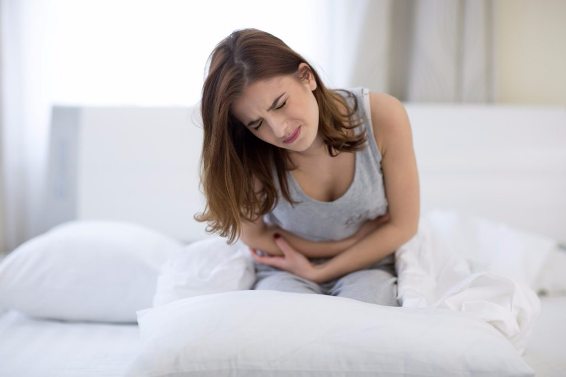Ovulation Pain: Symptoms, Causes and Treatment
Painful ovulation is suffered by many women, sometimes it can be a sign of a pathology. We tell you what its symptoms, causes and treatment are.
For women of childbearing age to feel a painful ovulation is more common than we think, in most cases it is a small temporary discomfort related to ovulation. Today we want to tell you why we feel pain during ovulation, what are the symptoms, the causes and their treatments.
Table of Contents
Ovulation Pain: Definition
Ovarian pain is linked to ovulation or the release of a mature egg ready to be fertilized. It occurs around the 14th day after the last menstrual period that is, around the middle of the cycle, and is manifested by specific symptoms, such as loss of cervical mucus as a thread transparent, similar to egg white.
Cramping pain after ovulation and pain during the menstrual cycle are very common. The pain of ovaries when we do not have the period is normal since it appears after ovulation and not at the same time, and therefore there could be other reasons that explain it.
Symptoms of Ovulation Pain
This specific pain can be easily recognized, since it usually affects a single ovary, which ejects the egg in that month so that we will hurt the side where the ovary is found.
It occurs in the form of sharp pain that can radiate even to the groin area and the leg. Some women may feel cramps and punctures, for others; on the other hand, the pain manifests itself very lightly. Sometimes it can be very intense, but it does not last for a long time.
Pain in the ovaries appears after ovulation, and may recur during menstruation. In this case, the pain occurs in the form of cramps in the lower abdomen area.
Possible Causes: Pathological and non-pathological
Pelvic inflammatory disease
Ovarian pain and frequent stomach cramps are often associated with kidney or back pain, but can also be caused by pelvic inflammatory disease (PID).
It is an infection of the female reproductive organs. It is a sexually transmitted disease whose origin is Chlamydia trachomatis or Neisseria gonorrhoeae viruses that cause this dangerous inflammation of the reproductive organs and which, if untreated, can lead to infertility.
Possible tumors
Both benign and malignant tumors are usually asymptomatic (except when they are advanced) so it is important to carry out a regular visit to your gynecologist, in these cases prevention is essential.
Other Causes of Painful Ovulation
It can also be the alarm signal of some more serious problem, for example the formation of cysts in the ovaries, the pain is one of its first symptoms.
Cysts are fluid-filled sac that form in the ovary and even outside. Often this gynecological problem remains silent and is only discovered through a pelvic ultrasound test.
Non-pathological causes
Ovarian pain is one of the most obvious pregnancy symptoms in the first few days or weeks. In most cases, ovarian pain and pregnancy are linked.
It manifests mainly in early gestation, shortly after conception and can also be very intense, both in one as in both ovaries. The pain diminishes as the pregnancy progresses, but if that does not happen, and in addition the ovarian pain is accompanied by loss of blood or mucus, then we could be facing the possibility of an ectopic pregnancy.
Painful ovulation and treatments
Natural medicine
- Heat: Apply heat to the area of pain, heat increases blood circulation and relaxes muscles. You can apply heat directly in the area or give yourself a warm bath.
- Anise and chamomile infusion: Prepares an infusion with green anise and chamomile, the infusions are very beneficial to relieve the menstrual pains.
- During the days of ovulation avoid red meat, salt, caffeine and alcohol. Avoiding this type of food will help relieve the pain.
Pharmacological Remedies
- Taking contraceptives: Contraceptives suppress natural hormones to stop ovulation, thereby eliminating ovarian pain.
- Analgesics: If the pains are unbearable and are not relieved by home remedies, try taking analgesics like ibuprofen or paracetamol.
When to visit the gynecologist
Pain in the ovary during ovulation is very common among women, but if the pain is persistent for 2 or 3 days and is accompanied by some of these symptoms, do not hesitate to consult your gynecologist to rule out other problems.
- Fever.
- Pain when urinating.
- Vomiting.
- Vaginal bleeding.
- Abnormal amount of flow.
- Swelling of the abdomen.
You have already seen that ovarian pain often responds, in most cases to the ovulation process, but it is important that you have the information and recognize the symptoms because, if the pain persists or these symptoms arise, it may be pathology far from Ovulation.
